You walk your 4-legged friend and you turn your back on him for a moment just to discover that he is grazing? He nibbles on a big bite of fodder and you’re totally shocked? If this is the first time you have witnessed such a strange act, you can easily give in to panic. Otherwise, you’ll probably be thinking about the vomit you’re going to clean up later from the carpet in the living room. However, try to stay calm, because a dog eating grass is not always something to be alarmed about. But why this surprising behavior and does it cause problems? When to worry and are there ways to discourage dogs from eating grass?
Is a dog eating grass normal?
Occasional grass eating may just be a sign that your dog is trying to ease his upset stomach. Some puppies vomit shortly after ingestion, while others withhold their vegan snack. Why ? Most often, a dog that eats grass and does not vomit has not ingested enough to regurgitate. A small study from the UC Davis School of Veterinary Medicine showed that only 22% of dogs studied vomited after eating grass and only 9% showed signs of illness before doing so. The researchers concluded that eating grass and other plants is normal behavior for domestic dogs.
Are there any health risks for the animal?
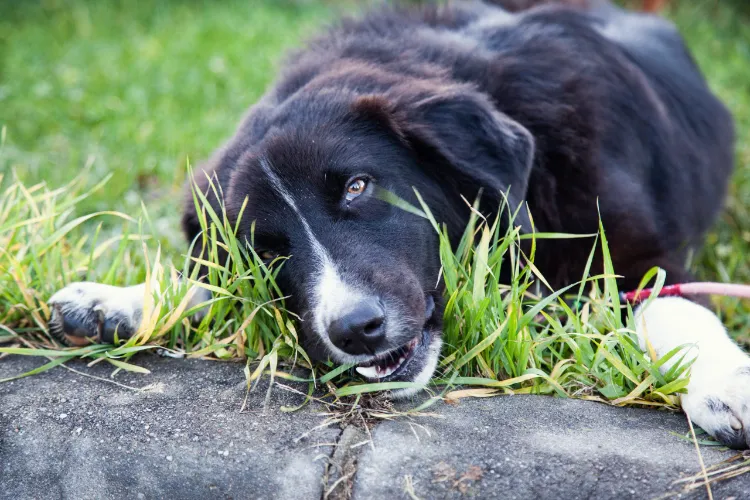
But sometimes even normal behaviors can be harmful. For example, grass can be treated with herbicides and pesticides that are toxic to dogs. A dog that eats grass can also ingest intestinal parasites, such as roundworms and hookworms, left over from animal feces. So, if you notice your Pug eating grass regularly or excessively, be on your guard. In case of frequent vomiting, diarrhea, weight loss, decreased appetite, bloody stools or lethargy, please consult your veterinarian.
Why does my dog eat grass?
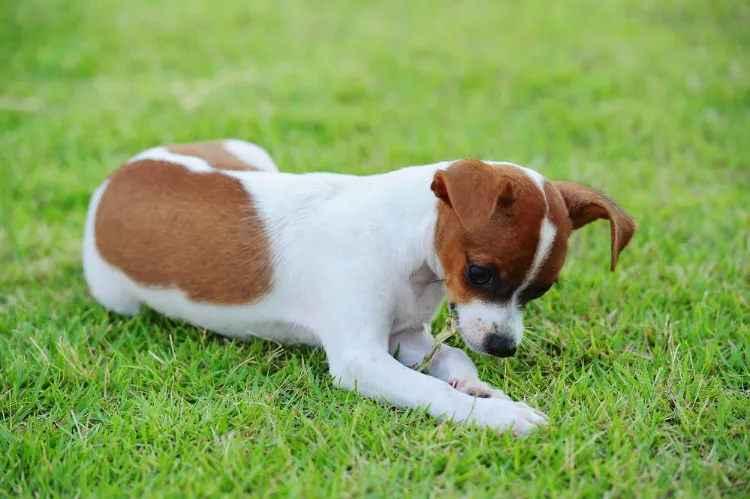
If you are wondering, “Why does my dog eat grass?” you must first realize that this is not a one-size-fits-all question, nor one that scientists have fully deciphered. In fact, the motives behind this bizarre food choice can be multiple and we will examine them one by one in the following passages.
He has a nutritional deficiency
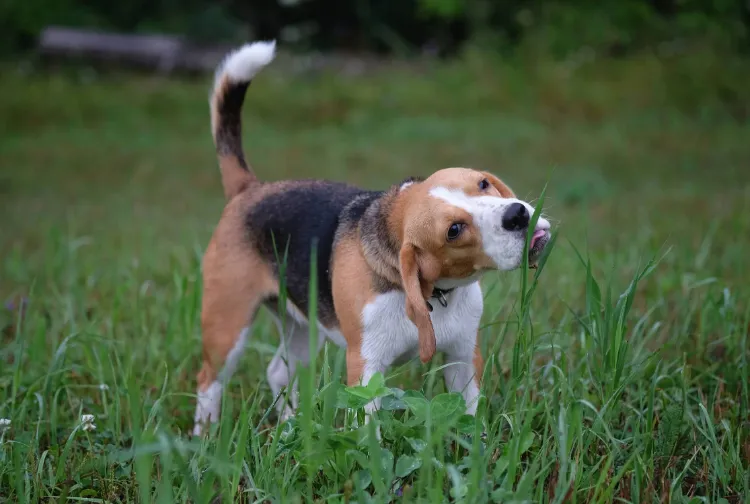
Some canine enthusiasts and veterinarians assume that a dog eating grass manifests a form of pica. It is the tendency to ingest substances that are not normally edible that is also seen in some small children. Specialists assume that it is linked to a dietary deficiency of vitamins, minerals and other nutrients absent from the daily intake. So consider changing food and talk to your veterinarian, especially if this behavior happens often.
Your canine friend needs more fiber
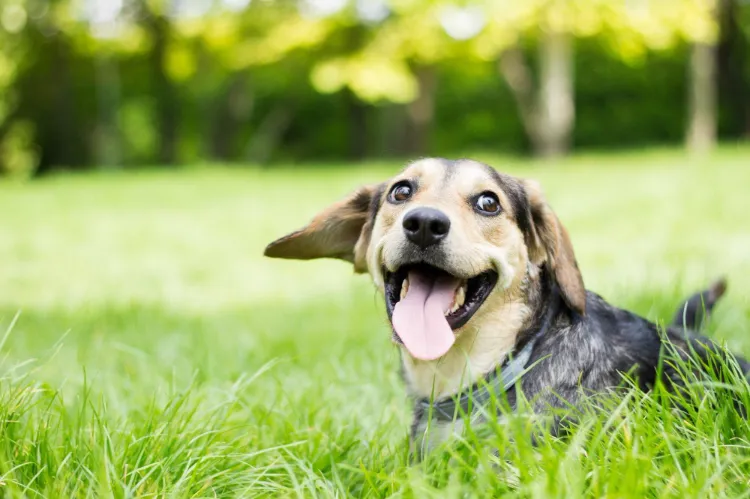
Along the same lines, eating grass could also be your dog’s way of getting more fiber. Dietary fiber helps him digest his food, pass stools and boost his gastrointestinal system.
He trusts his ancestral instincts
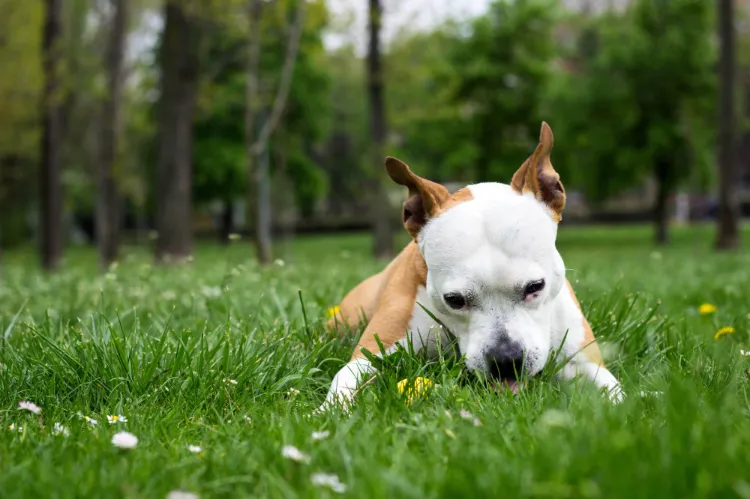
If his diet is complete and balanced, a grass-eating dog can simply trust his instincts. Over time, the digestive system, food needs and cravings of dogs have evolved to adapt to the lifestyle of domestic dogs, but not 100%. Wild dogs of old hunted their own prey and it often consisted of a herbivorous animal that had already eaten its own meal. This is why some theorists have hypothesized that contemporary dogs have a natural appetite for herbaceous plants.
A dog that eats grass takes his antacid
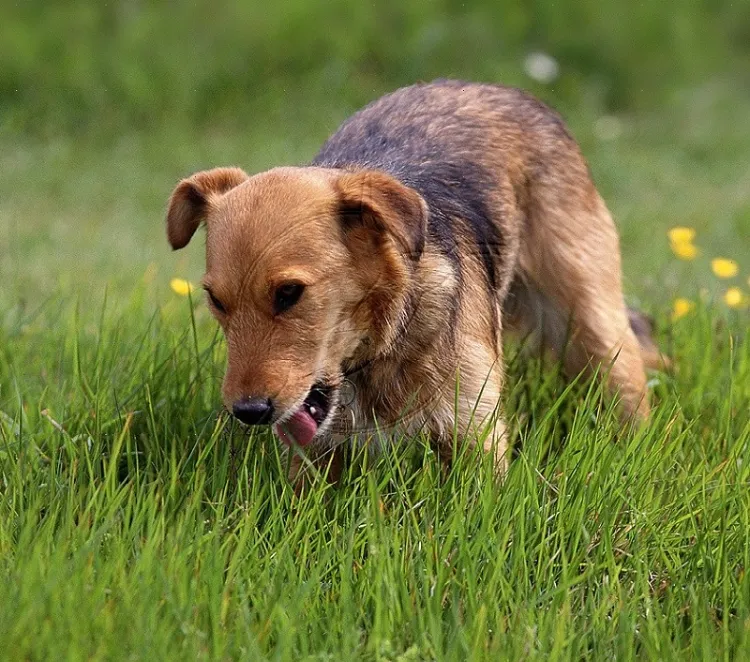
” Help ! My dog eats grass and vomits yellow! Don’t worry too much, as this isn’t a serious problem and has a fairly simple fix. The yellow foam that a grass-eating dog vomits up is actually bile, the presence of which usually indicates that your fluffy friend has an empty stomach. Bile can be very irritating to the stomach and cause great discomfort. In such a situation, humans take antacids for pain relief, but dogs can only eat grass to help release bile and feel better. So if your pet tends to graze in the morning, give it some of its food before you go outside. A small meal in the evening, just before going to sleep, can also help.
Your pet is bored
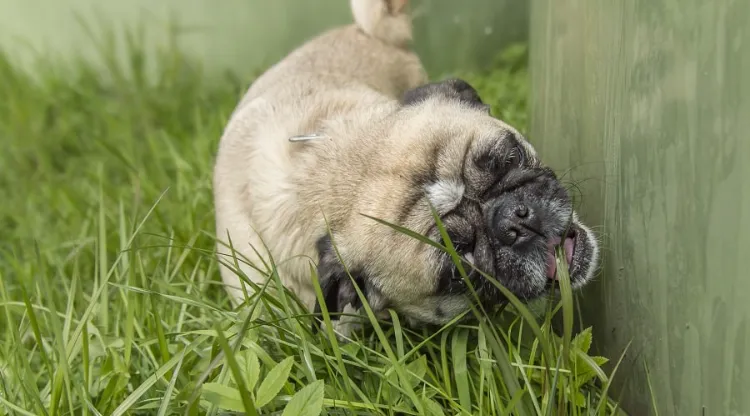
Do you have a fenced yard and you have the option of being able to let your canine buddy run free? Lucky you! The problem is that most pooches would rather have your company or they’ll get bored. If they play alone in the garden and they use the grass, it is perhaps the lack of fun that motivates them. A dog that eats grass out of boredom can therefore be discouraged with regular training, positive rewards and interesting games like throwing a ball.
He serves himself a tasty treat
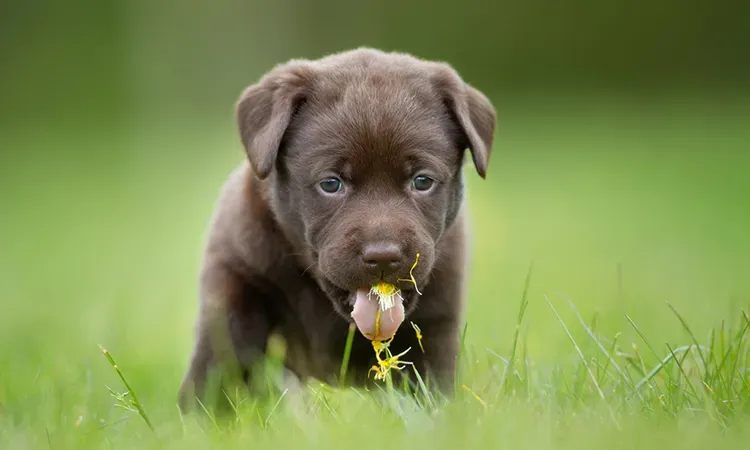
Of course, your dog may just enjoy the taste and texture of the fragrant, moist grass in his mouth. This is all the more true when the new strands have just sprouted for the first time in the spring and if your hound is thirsty. So, always keep a bowl of fresh water in the garden and bring a dispenser on your walks to satisfy your companion’s thirst.
Source used: www.akc.org